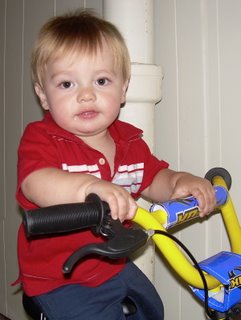





The article continues to discuss ways to address this new "emerging and growing"addiction. As a parent, and a very competetive one, it made me realize that even the most innocent appearing games and competetion can, over time, make a person lean towards more compulsive ways to work out their competetive behaviour. Perhaps 3-year-olds shouldn't have such a desire to win?





 As many of you know, I am currently working in Sparta teaching ESL to some of the migrant workers. It is a great program and I am having so much fun. I am working with a lady named Deb, who is just great and her Spanish is much better than mine- which helps! I really could tell lots of fun stories, but I don't want this entry to be too long! I hope to take more pictures so keep an eye on the blog!
As many of you know, I am currently working in Sparta teaching ESL to some of the migrant workers. It is a great program and I am having so much fun. I am working with a lady named Deb, who is just great and her Spanish is much better than mine- which helps! I really could tell lots of fun stories, but I don't want this entry to be too long! I hope to take more pictures so keep an eye on the blog!